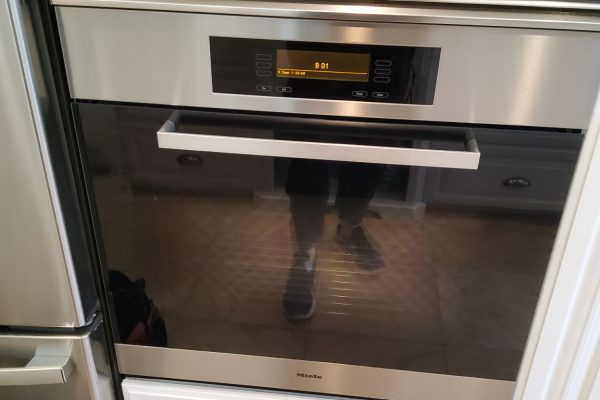In today’s world, where environmental concerns are at the forefront of global discussions, making eco-conscious choices has become increasingly important. When it comes to household appliances, refrigerators are significant contributors to energy consumption and environmental impact. By understanding the environmental aspects of choosing a refrigerator and selecting an energy-efficient model, consumers can reduce their carbon footprint and contribute to sustainability efforts. In this article, we’ll explore the environmental considerations of refrigerator selection and provide guidance on choosing an energy-efficient model.
The Environmental Impact of Refrigerators
Refrigerators are one of the most energy-intensive appliances in the average household, consuming a significant amount of electricity to maintain optimal cooling temperatures. This energy consumption not only contributes to greenhouse gas emissions but also leads to increased utility bills for consumers. Additionally, the production and disposal of refrigerators can have environmental consequences, including resource depletion, pollution, and waste generation.
Key Environmental Aspects to Consider
Energy Efficiency:
The primary environmental consideration when choosing a refrigerator is its energy efficiency. Energy-efficient models consume less electricity to achieve the same level of cooling performance, resulting in lower energy bills and reduced greenhouse gas emissions. Look for refrigerators with ENERGY STAR certification, which signifies that the appliance meets strict energy efficiency guidelines set by the Environmental Protection Agency (EPA).
Refrigerant Type:
The type of refrigerant used in a refrigerator can have significant environmental implications. Older refrigerators often use hydrochlorofluorocarbons (HCFCs) or chlorofluorocarbons (CFCs), which are ozone-depleting substances and potent greenhouse gases. In contrast, newer models typically use hydrofluorocarbons (HFCs) or alternative refrigerants with lower global warming potential (GWP). Choose a refrigerator with environmentally friendly refrigerants that minimize ozone depletion and greenhouse gas emissions.
Size and Capacity:
The size and capacity of a refrigerator impact its energy consumption and environmental footprint. Larger refrigerators require more energy to cool and maintain temperatures, especially if they are not fully utilized. Consider your household’s storage needs and opt for a refrigerator size that is appropriate for your family size and lifestyle. Avoid purchasing oversized refrigerators that exceed your storage requirements, as they will consume unnecessary energy and resources.
Design and Features:
Certain design features and functionalities can affect the energy efficiency of a refrigerator. Look for models with features such as high-efficiency compressors, improved insulation, and advanced temperature controls, which help minimize energy consumption while maintaining optimal cooling performance. Additionally, consider features like adjustable shelves, door alarms, and energy-saving modes that enhance usability and efficiency.
Lifecycle Considerations:
Evaluate the environmental impact of a refrigerator throughout its lifecycle, including production, use, and disposal. Choose brands and manufacturers with a commitment to sustainability practices, such as eco-friendly manufacturing processes, energy-efficient operations, and responsible end-of-life disposal and recycling programs. Opt for durable and long-lasting appliances that are designed for easy maintenance and repair, reducing the need for frequent replacements and minimizing waste generation.
How to Choose an Energy-Efficient Refrigerator
Look for ENERGY STAR Certification:
Check for the ENERGY STAR label when shopping for a refrigerator, as it indicates that the appliance meets stringent energy efficiency standards set by the EPA. ENERGY STAR-certified refrigerators are typically 10-20% more energy-efficient than standard models, saving you money on utility bills and reducing environmental impact.
Compare Energy Efficiency Ratings:
Compare the energy efficiency ratings of different refrigerator models to identify the most efficient options. Look for the EnergyGuide label, which provides information on estimated annual energy consumption and operating costs for each appliance. Choose a refrigerator with a lower energy consumption rating to maximize energy savings and environmental benefits.
Consider Size and Configuration:
Choose a refrigerator size and configuration that suits your household’s needs while minimizing energy consumption. Opt for smaller or compact models if you have limited space or live in a smaller household. Consider side-by-side or bottom-freezer configurations, which tend to be more energy-efficient than top-freezer models due to their design and layout.
Evaluate Features and Technologies:
Review the features and technologies offered by different refrigerator models to identify energy-saving options. Look for features such as adjustable temperature settings, energy-saving modes, and LED lighting, which help reduce energy consumption without compromising performance. Avoid unnecessary features or functionalities that may increase energy usage.
Read Reviews and Considerations:
Research and read reviews from reputable sources to gather insights into the energy efficiency, performance, and reliability of different refrigerator models. Consider factors such as cooling performance, temperature consistency, noise levels, and user satisfaction when making your decision. Choose a refrigerator that strikes the right balance between energy efficiency, performance, and user convenience.
Choosing an energy-efficient refrigerator is a proactive step towards reducing your environmental impact and promoting sustainability in your household. By considering key environmental aspects such as energy efficiency, refrigerant type, size and capacity, design features, and lifecycle considerations, you can make an informed decision that benefits both the environment and your wallet. Prioritize ENERGY STAR-certified models with eco-friendly refrigerants, efficient designs, and durable construction to maximize energy savings and minimize environmental footprint. Together, we can make a positive difference in preserving the planet for future generations by making conscious choices in appliance selection and usage.
Count on our services as the dependable solution for resolving household appliance issues! If your appliances need repair, fret not – reach out to Oceanside Appliance Service Center, and we’ll help eliminate any inconvenience.
With extensive experience in repairing household appliances of diverse brands and models, our highly qualified technicians possess profound knowledge and expertise in handling refrigerators, washing machines, dryers, dishwashers, stoves, ovens, and more.
We ensure a professional approach to every task, using only original spare parts for repairs. Our primary goal is to restore your household appliances to optimal condition.
Contact us:


